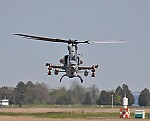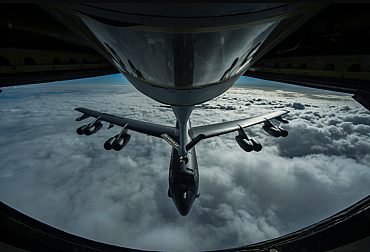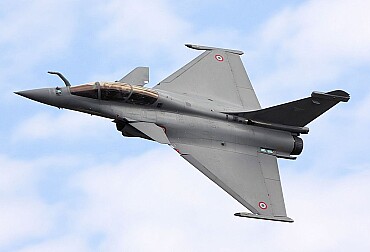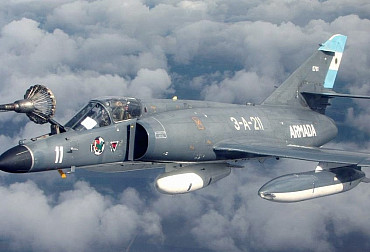Bangladesh explores acquisition of Pakistan’s JF-17 fighter jets
In a significant development in regional defense cooperation, Bangladesh has expressed interest in acquiring the JF-17 Thunder fighter jets from Pakistan. This follows a high-profile visit by a Bangladeshi defense delegation, led by Lieutenant General S M Kamrul Hassan, Chief of General Staff of the Bangladesh Armed Forces, to the Pakistan Air Force Headquarters in Islamabad. The visit aimed to bolster military ties and explore avenues for collaboration in defense manufacturing and technological advancements.

Strengthening Military Ties
During the meeting with Air Chief Marshal Zaheer Ahmed Baber Sidhu, discussions revolved around enhancing military cooperation between the two nations. Bangladesh has been seeking advanced and cost-effective military solutions to modernize its armed forces, and Pakistan’s growing defense production sector has emerged as a potential supplier. The interest in the JF-17 Thunder signifies Dhaka’s willingness to diversify its military procurement sources beyond traditional partners.
Air Chief Marshal Sidhu underscored Pakistan’s commitment to fostering stronger defense relations with Bangladesh. He stated, “The Pakistan Air Force is ready to extend full cooperation to Bangladesh in enhancing interoperability and strengthening defense ties.” This statement reflects Islamabad’s broader objective of strengthening military partnerships in the South Asian region.
The JF-17 Thunder: A Cost-Effective Fighter Jet
The JF-17 Thunder, a multi-role combat aircraft jointly developed by Pakistan and China, has attracted global attention for its cost-effectiveness and versatility. Equipped with modern avionics and advanced weapon systems, the JF-17 is capable of executing a wide range of air combat and ground-attack missions.
The JF-17C variant, in particular, offers several advancements over earlier versions, including improved radar systems, enhanced weapons payload, and superior maneuverability. This makes it a strong contender for Bangladesh, which is looking to modernize its air force without incurring exorbitant costs.
Potential Benefits for Bangladesh
If Bangladesh proceeds with the acquisition of JF-17C fighter jets, it would mark a significant step in its military modernization efforts. The addition of these aircraft would enhance the operational capabilities of the Bangladesh Air Force (BAF), providing a more robust defense against potential security threats. The JF-17C’s ability to integrate various weapon systems and perform in diverse combat scenarios makes it a valuable asset for any air force seeking affordable yet advanced fighter jets.
Additionally, Bangladesh’s interest in the JF-17C reflects a broader strategy of strengthening self-reliance in defense procurement. By diversifying its defense imports, Bangladesh can reduce its dependency on any single country and negotiate better deals for future military acquisitions.
Broader Implications for Pakistan and the Region
Bangladesh’s potential purchase of the JF-17C would also have broader geopolitical and economic implications. For Pakistan, securing an arms deal with Bangladesh would solidify its position as a key player in the global defense market, showcasing the capabilities of its indigenous defense industry. This could open doors for further defense exports to other nations seeking cost-effective alternatives to Western-manufactured fighter jets.
For the South Asian region, enhanced military cooperation between Bangladesh and Pakistan signals a shift towards greater collaboration among developing nations in defense technology and arms trade. Such partnerships could contribute to regional stability by fostering mutual interests and reducing dependency on external defense suppliers.
Next Steps
Reports indicate that Bangladesh is planning to send an official delegation to conduct a comprehensive evaluation of the JF-17C variant before making a final decision. This assessment will likely involve in-depth technical analysis, flight evaluations, and negotiations on financial terms.
Should the deal materialize, it could pave the way for further defense collaboration between the two countries, potentially extending to joint exercises, training programs, and technology transfers.
Conclusion
Bangladesh’s expressed interest in the JF-17C Thunder underscores the growing recognition of Pakistan’s defense manufacturing capabilities. The move also aligns with Bangladesh’s long-term strategy to modernize its military forces while maintaining cost-effectiveness. If successful, the potential acquisition could not only strengthen Bangladesh’s defense posture but also reinforce bilateral military ties, setting the stage for future cooperation in regional security and defense technology.
As both nations continue to explore mutual defense interests, the world will be watching closely to see how this potential arms deal unfolds and what it means for the broader defense landscape in South Asia and beyond.








